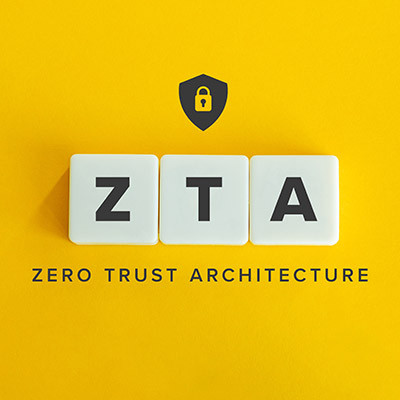It’s often difficult to figure out who and what you should trust with your business’ cybersecurity. How can you know for sure that each individual accessing your infrastructure is secured from threats? A zero-trust model can help by providing reassurance that everyone accessing your network is who they say they are.
What is Zero-Trust?
Zero-trust policies are when you don’t inherently trust anyone or anything on your network. This includes devices, accounts, or users on the network. Basically, if someone wants to access your network or any information located on it, they will first have to identify themselves, no matter who they are. They could be a business executive or the average office worker; there are zero exceptions made for a zero-trust policy. Generally speaking, zero-trust policies are governed by some form of external authentication.
There are many benefits to a zero-trust model. As you might expect, when nobody is inherently trusted on the network, security is drastically increased. When identities are verified before any activity occurs, the network is much more secure because only authenticated individuals can do anything on it. On the other side of this benefit is what happens when the user is genuine but cannot verify themselves. This might make for a rough implementation process, but once your policies get settled, you’ll find that it will make network access much less stressful for your company.
What Are the Downsides?
The greatest challenge that an organization will face when implementing zero-trust policies in the workplace is the major infrastructural challenges that will come about as a result of their implementation—particularly for larger enterprises with large workforces, as this means more devices accessing the same infrastructure, and therefore, more need for continuous authentication. The technologies involved in reinforcing these zero-trust policies can make the logistics difficult without committing wholeheartedly to the process. We recommend that, before you implement zero-trust policies, you consult with security professionals like those at Data Net to determine if it’s the right call for your business.
If you do decide that it’s the right decision for your organization, Data Net can equip your company with the policies and technologies needed to ensure it is a successful deployment, as well as the support you might need. With multi-factor authentication and additional protections, you can make sure that only authorized individuals are accessing your network. To learn more, reach out to us at (760) 466-1200.



Comments